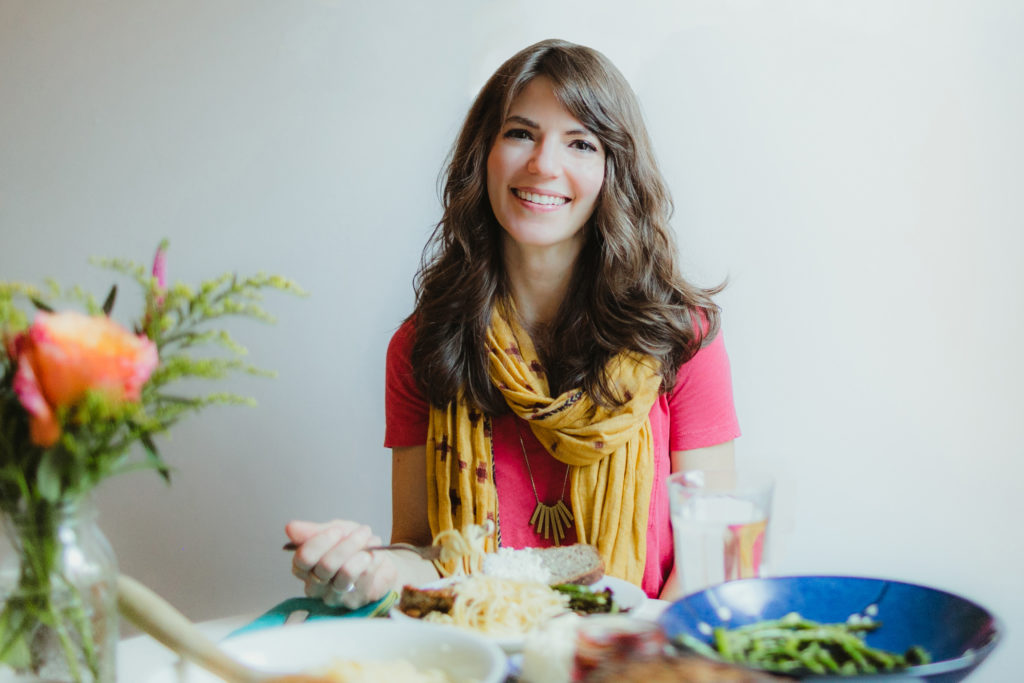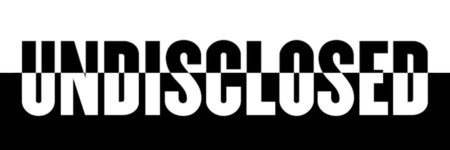When Christy Harrison started Food Psych in 2013, she was a grad student seeking a creative outlet and a chance to talk about a topic she was passionate about. With a history of disordered eating and a degree in nutrition, she “had a lot of feelings about food.”

At the time, Harrison was pursuing a master’s degree in public health, studying to become a licensed dietician, and working in a nutrition policy job that involved a lot of number crunching. “It wasn’t very human,” she says. “There was a lot of data to parse. And so I was listening to podcasts all day long to kind of get that human connection.” With 10 years of journalism experience, she was well-versed in the art of the interview and hungry for something creative and “to do something with my journalism skills, my interview skills, and something more around speaking and engaging with people.”
Listening to all those podcasts gave Harrison a feel for the style she wanted to emulate and the missteps she hoped to avoid before recording her first episode. She hoped that her own podcast—which would feature open conversations with guests about their relationships with food—would reduce listeners’ shame around the topic. One of the first inspirations was WTF with Marc Maron, Harrison says. She wanted to be “the Marc Maron of food podcasts.”
Early on, and not knowing any better, Harrison imported all her contacts—including a decade’s worth of journalism contacts—into her email subscriber list. Between her significant mailing list and personal connections with writers who published articles mentioning her podcast, Harrison started out strong.
As I became more sure of my voice and had a more clear point of view, I think it started to attract people who are really interested in that point of view.
But it would be years before Food Psych skyrocketed to become one of Apple’s top 100 health podcasts. And as Harrison narrowed her focus, the show’s popularity snowballed. The first season featured conversations with people about their general relationships with food and averaged 900 downloads per episode. The second season, which focused specifically on eating disorders, saw an average of 1715 downloads per episode.
The third season was when the show saw exponential audience growth, which Harrison credits to two factors. Partly, it was due to changes in how Apple podcasts calculated metrics. More importantly, she’d shifted her focus toward topics such as Health At Every Size, intuitive eating, and “anti-diet stuff.” “It grew pretty significantly when I honed in on those topics,” says Harrison,averaging 3766 downloads per episode.“ As I became more sure of my voice and had a more clear point of view, I think it started to attract people who are really interested in that point of view.” The show had become a platform for calling out diet culture.
Now in its seventh season, Food Psych’s guests include health and psychology professionals, anti-diet activists, and leaders in the body-positive movement. Discussions center around food, body image, and guests’ experiences with weight stigma and eating disorders and it’s “a very different kind of vibe” from the lighter one it began with. Nearly 250 episodes in, with over 2,000 five-star reviews on Apple podcasts, the new vibe is right on target.
Her advice to rookie podcasters? First, be patient. “I think when you rush to get growth, sometimes it can be at the expense of a really engaged audience,” she says. While Harrison is quick to admit that she wanted to see massive numbers right out of the gate, in hindsight, “it’s got to be a much more slow and steady process.” It’s also been incredibly helpful to have listeners who have stuck with her since the beginning since “the ultimate goal is having people who can support and be with me on this journey.”
Second, don’t be afraid of change. “Go in the direction you’re inspired to go, she says. As Harrison learned firsthand, the subjects that inspire you may change over time—and that’s okay. As her show evolved from reducing shame around food to dismantling diet culture, she’s finding herself shifting gears once again. Though her focus on diversity and anti-racism is not new, Harrison says, “this current moment has made me focus even more on that connection between anti-racism and ending diet culture, and so that may become a new niche that changes the audience yet again for me as I go forward.”
Finally, Harrison urges new podcasters to focus on what your podcast can do for your audience rather than your bank account: “Don’t just think of it as a revenue generator for you or a way to get people into your business.” She recommends focusing on your message and how it will make the world a better place: “I really see [podcasting] as a way to affect social change.”




Comments